Blog photo credit: Guilhem Vellut, CC BY 2.0
In its spring 2023 issue, the magazine Immorama, founded by Thierry Barbier-Mueller in 1977, devotes a fascinating feature, prepared by journalists Emmanuel Grandjean and Thierry Oppikofer, to those who also made Switzerland what it is today. An opportunity to reflect on the impact of Lemania as an actor for the greater good in Switzerland.
Ovomaltine, Rolex, Nescafé, Swatch or Nagra. What do they all have in common?
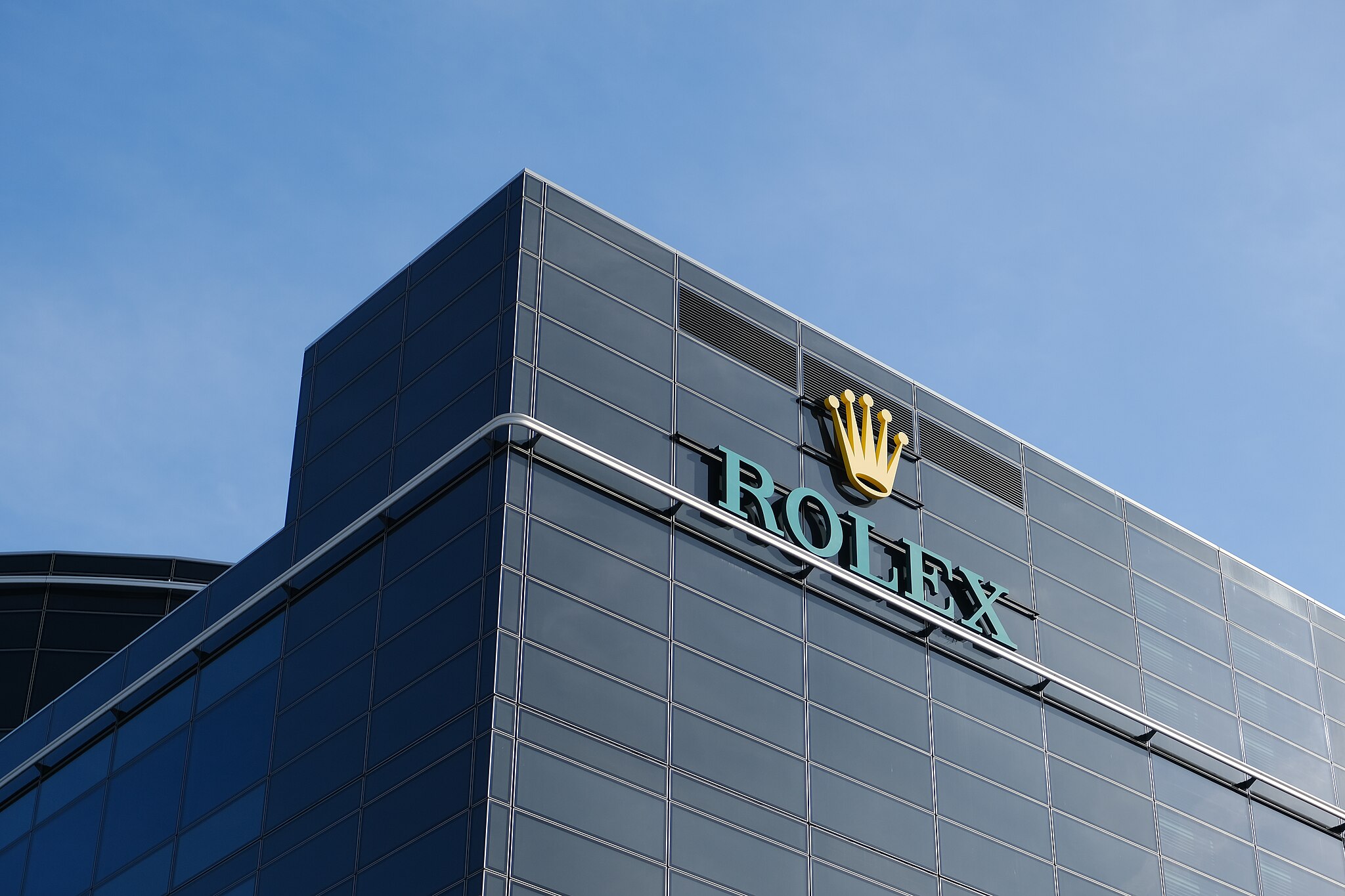
Once upon a time: a welcome migration
Famous artists such as the painters Paul Klee and Oskar Kokoschka, scientists such as Albert Einstein and Auguste Piccard, and writers such as Hermann Hesse and Rainer Maria Rilke have lived in Switzerland, sometimes settling here permanently, and some have even obtained Swiss nationality.
But they were not alone. Many industrialists of foreign origin also chose Switzerland to develop their activities. Some came from Germany, like Henri Nestlé, Georg Wander and Hans Wilsdorf, others from Poland, like Antoine Norbert of Patek and Stefan Kudelski. As for Nicolas Hayek, he was born in Beirut.
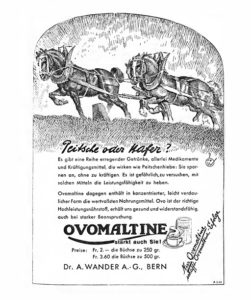
The dossier in Immorama magazine clearly shows the crucial role that immigration has played in the development of our country over the years, and the illustrious names mentioned above are just the tip of the iceberg! I’ve never had the pleasure of counting how many “secundos” (second-generation immigrants) are currently heading up promising start-ups in Switzerland.
The positive attitude of the past towards foreigners settling in Switzerland and contributing to its development is now clearly being called into question and is the subject of heated debate as Switzerland renews its parliament on 22 October 2023.
Today: migration that raises questions
Immigration is clearly one of the most hotly debated issues of recent times, often in conjunction with labour shortages in various sectors of our economy, as illustrated by a multi-page dossier in the October 2023 issue of PME Magazine.
Sergio Rossi, Professor of Macroeconomics and Monetary Economics at the University of Fribourg, takes a forward-looking view: “As migratory flows continue unabated in the face of war and climate change, finding jobs for these people will prove essential to curbing the rise of populism and guaranteeing social cohesion. This cohesion is essential for the economy to function properly.
Jacques Gerber, PLR, Jura Minister for the Economy and Health, points out that “without foreign labour, our economy cannot function”. He called for a solution to settle our relations with the European Union and for the free movement of people to be maintained.
Michaël Buffat, a UDC member from the canton of Vaud, questioned this freedom of movement. In his view, migrants from the EU are the wrong people. “Since 2007, only 20% of them have been highly qualified workers”. He advocates targeting professions that meet the needs of our economy, and therefore practising selective immigration.
Philippe Nantermod, PLR from Valais, wants quotas for third-country nationals to be relaxed to remedy the labour shortage in key sectors of our economy.
This diversity of opinion shows just how complex and sensitive the issue is today.

A human tragedy that cannot leave us indifferent, and whose causes lie outside Switzerland
It is clear that the current wave of migration, which is affecting Switzerland and to an even greater extent other European countries such as Greece and Italy, is not of the same nature as the migration of the past that I described above. Most of the migrants who now risk their lives crossing the Mediterranean are poorly qualified and will not help us, at least for the time being, to solve our labour shortage problems.
The overwhelming majority of migrants arriving in Europe from Africa, Afghanistan or elsewhere have a tragic story to tell, and potentially offer hope to their families back home. We owe it to them to welcome them as best we can, and there is nothing to suggest that this migratory flow will diminish over the coming decades. According to demographers, Africa, one of the main places of origin of migrants, will have a population of two billion by 2050.
What can be done to put an end to this tragedy? And what role can Switzerland play?
In my view, the very first measure to take is to drastically improve living conditions in the countries of origin. This is the aim of the United Nations’ 2030 SDGs (Sustainable Development Goals). Unfortunately, we already know that these goals cannot all be achieved by that date.
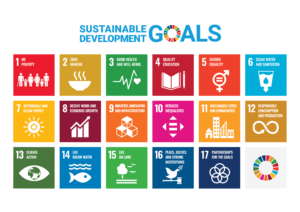
Nevertheless, we must do everything we can to achieve them by combining the efforts of governments, businesses and NGOs (non-governmental organisations). Switzerland is contributing to these efforts through its Official Development Assistance, which will spend CHF 4.27 billion in 2022. There are also significant contributions from Swiss NGOs.
The catalogue of measures that urgently need to be taken is immense and can be discouraging: appeasing conflicts, putting an end to deforestation, better remunerating producers of food and other raw materials, repatriating part of the processing of products to producing countries to increase added value, decarbonising transport and industry, improving health throughout the world, bearing in mind that the causes of morbidity and mortality in developing countries are increasingly similar to those in developed countries. But there is no alternative!
Only a better distribution of wealth, better living conditions in poor countries and the hope of a better future for the youth of these countries will be able to curb this migratory flow that is putting our democracies under pressure. But it won’t happen overnight!
What can we do here?
The duty of host countries is also to train the migrants who arrive, to equip them with the skills and know-how they need so that they can quickly integrate into our societies, work there and contribute to the development of our country, as Henri Nestlé or Georg Wander were able to do a hundred years ago.
The government is making its contribution by providing reception classes, apprenticeships and micro-credit facilities at the University of Geneva.
Private schools also contribute by offering language courses and training at primary, secondary and university levels to a largely international clientele, some of whom settle in our country.
Several of these schools have foundations that grant scholarships or interest-free loans, such as the Paul Du Pasquier Foundation at the Lemania School. The AVDEP (Association Vaudoise des Ecoles Privées) and the FSEP (Fédération Suisse des Ecoles Privées) can also provide occasional assistance.
Several private schools, including the Lemania School, welcomed Ukrainian children and teenagers in 2022 on preferential terms, sometimes even free of charge.
These efforts clearly demonstrate the willingness of public schools to contribute to the educational needs of migrant populations in Switzerland and to welcome everyone without discrimination.
However, their resources are limited. They would be prepared to make a greater contribution in favour of the most disadvantaged if the State or private foundations could fund them for this purpose.
Other posts

Discover the Story of Mina, the AI of Lemania
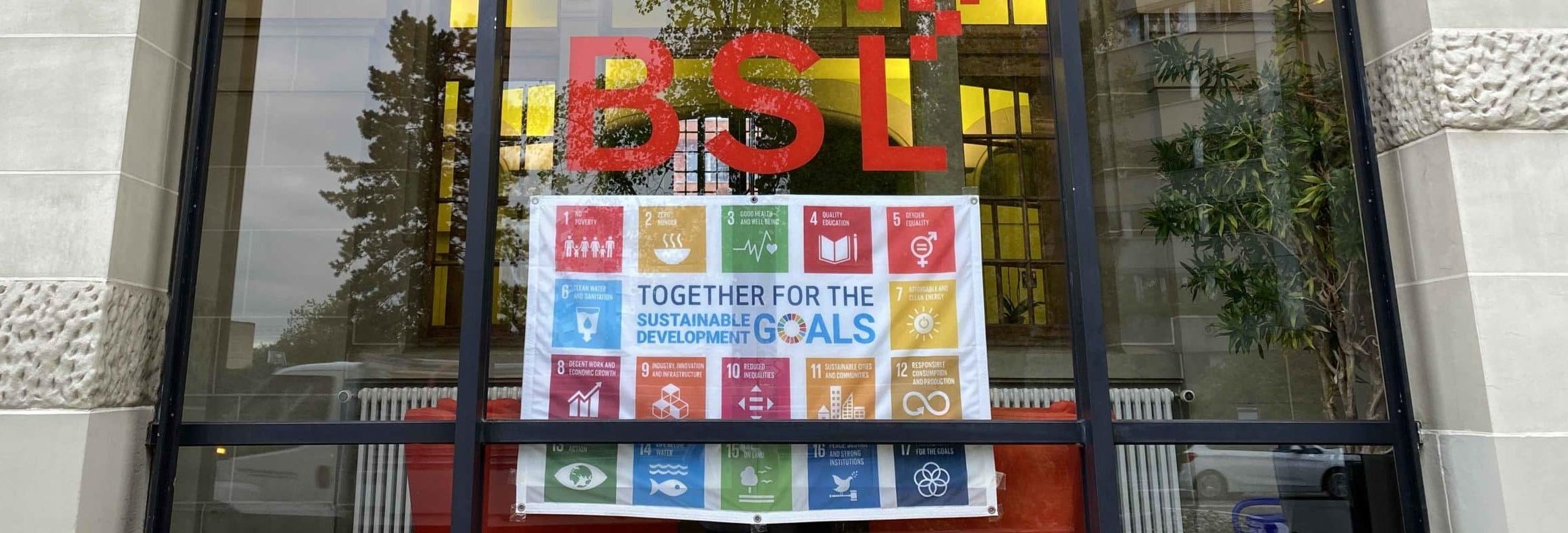
Climate Change: Why We Shouldn’t Be Discouraged Despite Trump’s Return to Power

We are not condemned to choose between happiness and ecology
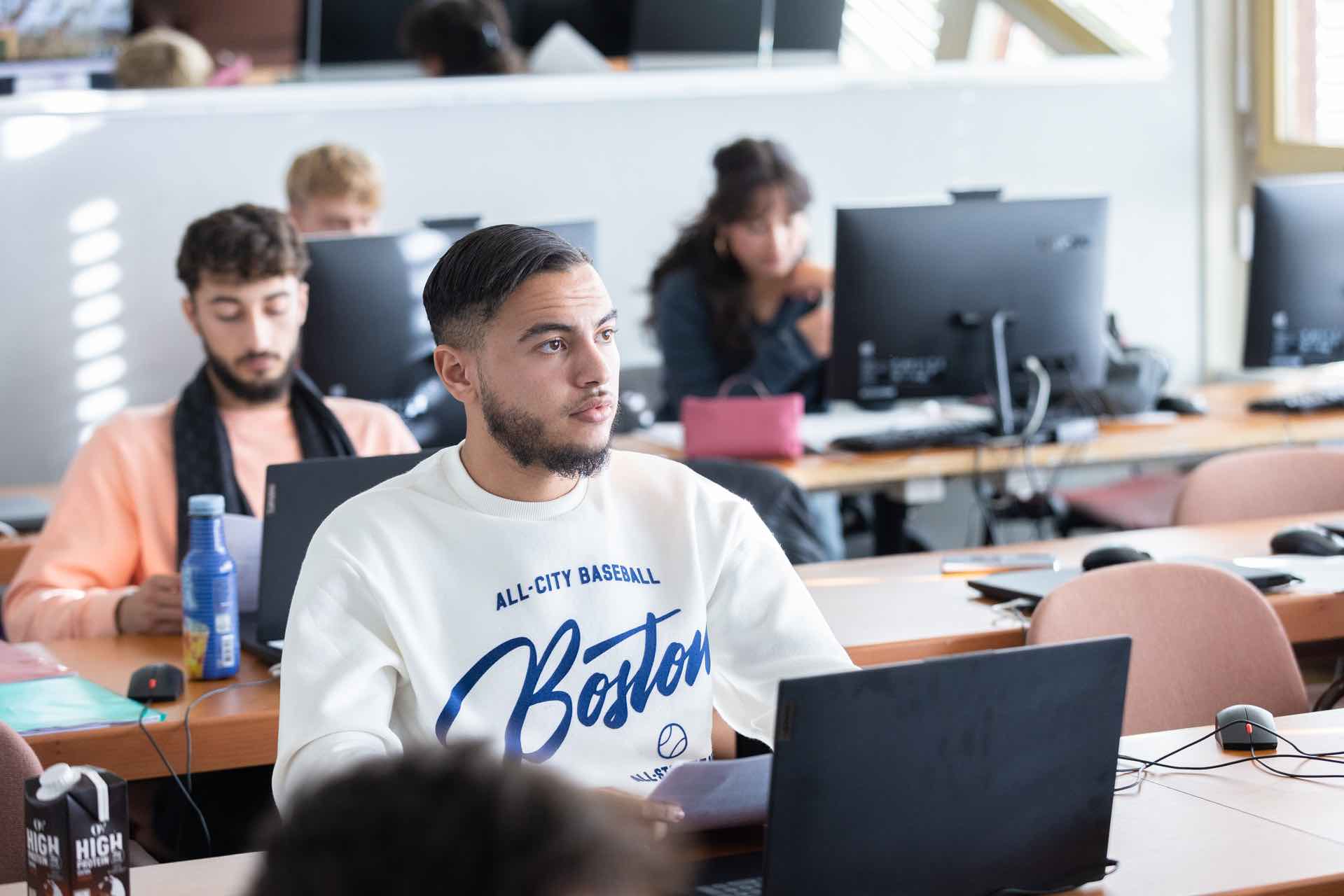
When the vocational training is just a first step

Writing by hand helps you remember, or the proper use of tablets
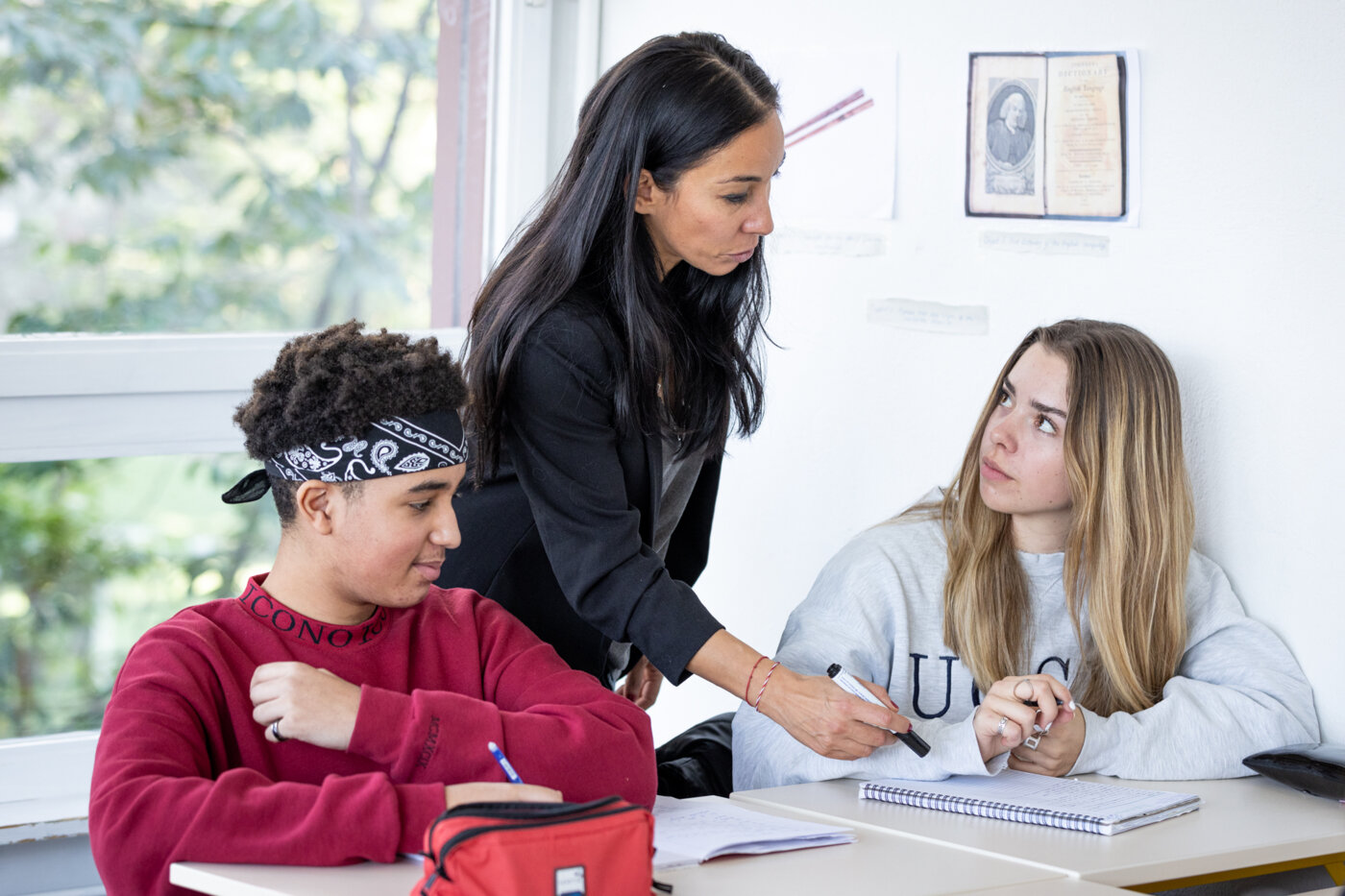
Pedagogy: from commonplaces to key concepts


